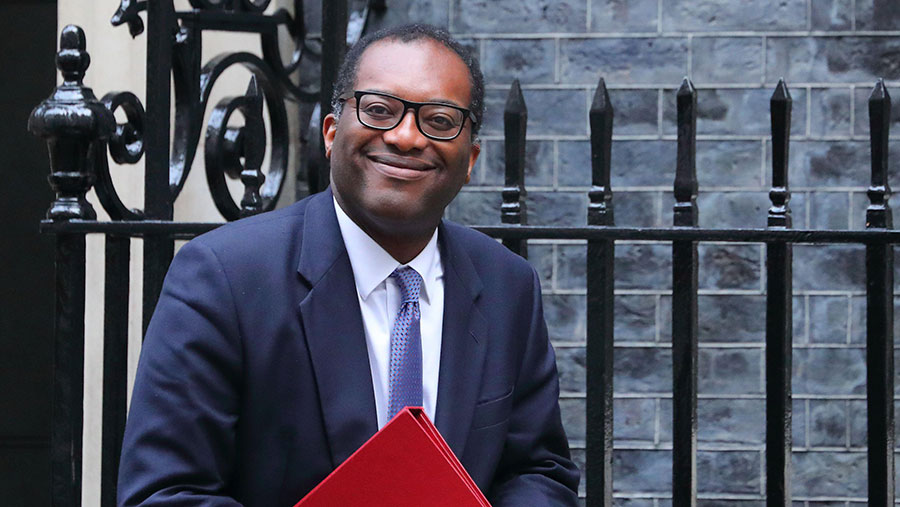Emergency Budget extends annual investment allowance at £1m
 Kwasi Kwarteng © Uwe Deffner/Alamy Stock Photo
Kwasi Kwarteng © Uwe Deffner/Alamy Stock Photo The annual investment allowance (AIA) is to remain at £1m permanently, chancellor Kwasi Kwarteng announced in his unofficial Budget today.
The AIA allows 100% of spending on plant and equipment to be set against business income in the year the spending is incurred.
The allowance has yo-yoed in recent years, complicating investment planning. It had been set to drop to £200,000/year from April 2023, so the announcement that it will remain at £1m has been welcomed.
See also: Tax and money management tips for diversified farm businesses
Elizabeth Jones, a partner at accountant Azets, said the move was useful, particularly as there had been significant delays in getting hold of farm equipment in time for the planned cut-off of the £1m allowance.
Personal tax and national insurance
The basic rate of income tax will be cut from 20% to 19% from April 2023, while the highest rate of 45% is being abolished.
The 1.25% rise in national insurance rates, introduced last April for employees, employers and the self-employed, is being scrapped from 6 November.
Corporation tax
The planned April 2023 rise in corporation tax from 19% to 25% has been scrapped.
While the vast majority of farming businesses operate as sole traders and partnerships, there has been a move to adopt a company structure, particularly for dairy farm businesses, in recent years.
Tax is just one of many factors considered in deciding whether a farm business should trade as a company, said Andrew Robinson, partner and head of agriculture at accountant Armstrong Watson.
He pointed out that cancelling the planned increase in corporation tax rates and a reduction in the basic rate of income tax to 19% from next year means that for the first time in quite a while, farming businesses set up as either companies or partnerships/sole traders will be taxed at the same basic rate.
However, those sole traders and partners whose businesses are making good profits may well fall into higher-rate income tax at 40%, so there is a still a potentially significant tax saving as a company, he said.
A cut in the dividend tax rate from next April meant some of those trading as a company may want to delay voting on dividends until after 6 April next year, said Ms Jones.
Business regulation reform
Early in his speech, the chancellor said he aimed to expand the supply side of the economy through tax incentives and reform, with further moves on business regulations, agricultural productivity and digital infrastructure promised.
The detail on these measures is yet to come, but further farm productivity grants are expected.
Planning
Planning law is set for a shake-up, with progress on major infrastructure projects such as for transport and energy too slow, said the chancellor, who promised a new bill to unpick the complex patchwork of planning law.
The government plans to set up investment zones in 38 local areas in England. These are expected to take in an extensive hinterland, including many thousands of acres of farmland.
Investment incentives in these zones will include lower taxes, business rates and freer planning rules to release land for housing and commercial development.
Less-stringent environmental assessments are also expected to form part of this policy, which has implications for farmland values and farm business development.
Mr Kwarteng’s speech also included a reference to bringing the consenting of onshore wind in line with that for other infrastructure.
Duty rate rises for smaller wine and beer makers were cancelled in the Budget.
